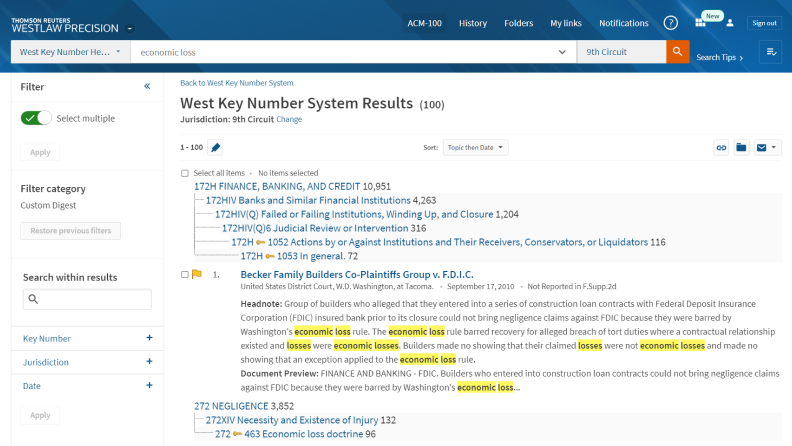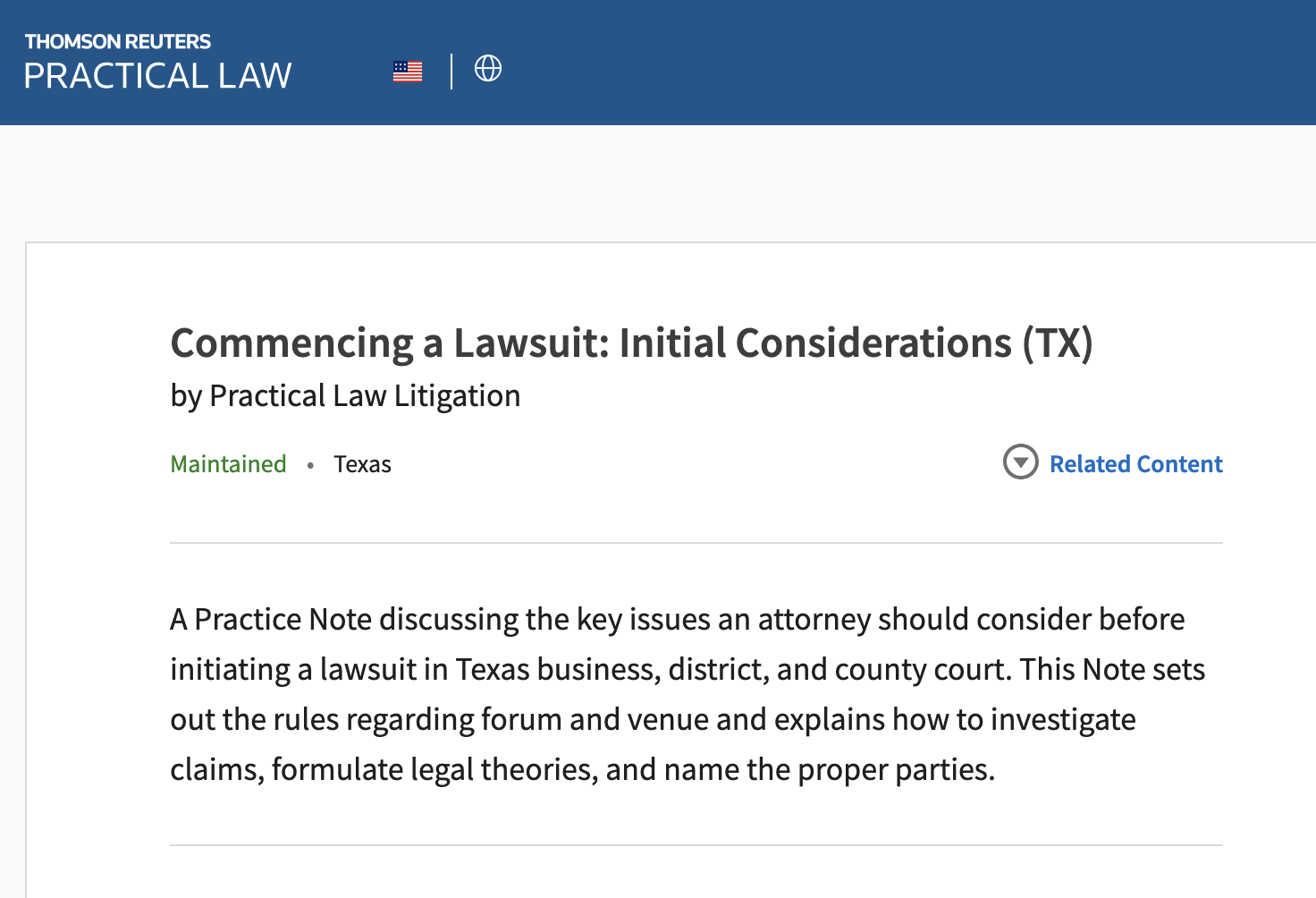Researching Texas case law requires understanding the unique Texas judicial system. Use this guide to identify the most relevant online resources
Texas laws · Texas case law
Researching Texas case law requires an understanding of the state’s unique judicial system, along with knowing where to find relevant rulings online. Today, online databases make it easy to find decisions made by intermediate appellate courts and courts of last resort, whether searching by name, citation, or keywords.
For state case law, you’ll encounter a unique system that’s different from any other state in the country except Oklahoma. Instead of having a single court of last resort, Texas has two. This means researching Texas state case law involves searching for decisions within:
- Texas’ 15 Courts of Appeals
- Texas Court of Criminal Appeals (court of last resort for criminal cases)
- Texas Supreme Court (court of last resort for civil cases)
Jump to ↓
Texas state court system
The Texas state court system is a hierarchical system encompassing trial courts, appellate courts, and courts of last resort.
Trial courts and lower level appellate courts include:
- Justice courts: Local trial courts that can serve as small claims court, hear civil claims under $20,000 and criminal cases punishable only by fines.
- Municipal courts: Trial courts within incorporated cities that hear cases like city ordinance violations or criminal cases punishable only by fines.
- County courts: Can hear appeals from lower courts. Also can serve as trial courts for civil claims less than $20,000 or class A and B misdemeanor crimes.
- District courts: Trial courts that hear both civil and criminal cases, such as felony cases, land titles, and civil matters over $200.
- Probate and juvenile courts: Typically handled by county courts or some district courts. Larger counties may have specialized probate and juvenile courts.
- Business court: Open since Sept. 1, 2024, handles complex business cases or cases involving state entities.
When researching case law, however, you’ll be looking to the following courts.
Court of Appeals
Texas has 15 Courts of Appeals with intermediate appellate jurisdiction that create case law. These include:
- 1st: Houston
- 2nd: Fort Worth
- 3rd: Austin
- 4th: San Antonio
- 5th: Dallas
- 6th: Texarkana
- 7th: Amarillo
- 8th: El Paso
- 9th: Beaumont
- 10th: Waco
- 11th: Eastland
- 12th: Tyler
- 13th: Corpus Christi/Edinburg
- 14th: Houston
- 15th: Statewide appeals arising from the Texas Business Court.
Texas courts of last resort
Texas has two courts of last resort:
- Texas Supreme Court: Civil matters
- Texas Court of Criminal Appeals: Criminal cases
Texas federal court system
For Texas federal cases, you’ll research case law decisions within the:
- 5th District Court of Appeals
- U.S. Supreme Court
The federal court system in Texas consists of the following:
- District courts: Northern, Eastern, Southern, and Western
- Bankruptcy courts: Four federal bankruptcy courts, one in each district
- Fifth Circuit Court of Appeals: Hears appeals from district courts
- U.S. Supreme Court: Court of last resort for federal cases
Case law resources
When researching Texas case law, you’ll be focusing on the Fifth Circuit Court of Appeals and the U.S. Supreme Court for federal cases, and the 15 Courts of Appeals, Texas Court of Criminal Appeals, and Texas Supreme Court for state cases.
Start with Westlaw Precision with CoCounsel. You’ll find reported and unreported case law from the Texas state courts, Texas federal district and bankruptcy courts, the Fifth Circuit Court of Appeals, the Supreme Court, and the U.S. Judicial Panel on Multidistrict Litigation. This includes documents released for publication in West’s Federal Reporters, South Western Reporter beginning with 1 S.W., and other publications.

Westlaw Precision with CoCounsel
Features the master classification system of U.S. case law
Explore feature ↗Other resources you might check include:
- Texas Courts Online: Search cases and opinions from the Texas Court of Criminal Appeals, Texas Supreme Court, and other Texas courts.
- PACER (Public Access to Court Electronic Records): For searching federal court records.
- Court Listener: A free legal research website, run by a nonprofit, where you can search court cases and legal opinions.
- Texas Law Library: If you’re a resident of Texas, you can apply for a free library account and get access to select remote library databases.
- Google Scholar: Select the case law option to search opinions via keywords, jurisdiction, and more.
- Texas Supreme Court: Click on Orders & Opinions to see the most recently released opinions.
Almost all case law in Texas is digitally available. Utilizing versatile case law research tools that gather all the potentially relevant cases saves you immense amounts of time.








